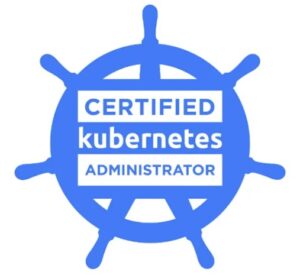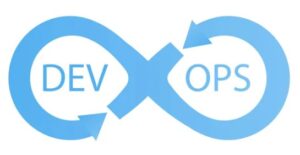
Ace the CKA Exam on Your First Try: Proven Tips for Guaranteed Success

Introduction
In the fast-paced realm of cloud technology, mastery of Kubernetes has become more than just a skill—it’s a game-changer. As businesses race to harness the power of containerization and cloud-native environments, the demand for adept Kubernetes administrators has surged. At the forefront stands the Certified Kubernetes Administrator (CKA) certification, a beacon of proficiency validated by the Cloud Native Computing Foundation (CNCF) in collaboration with The Linux Foundation. This article delves into why CKA certification is indispensable, its transformative impact on career trajectories and earning potential, critical exam domains, prerequisites for success, certification maintenance, and the burgeoning demand for CKAs projected through 2024.

If you’re keen on enhancing your expertise in Kubernetes, we cordially invite you to explore “CKA Essentials: Fast Track to Exam Success” by VERSAtile Reads. Within the pages of this book, you will discover invaluable insights that can illuminate your path toward success in the realm of container orchestration and management.
Kubernetes and DevOps
Kubernetes and DevOps are closely linked as Kubernetes provides the container orchestration needed for automated, scalable, and consistent application deployment, aligning with DevOps practices of continuous integration, delivery, and infrastructure as code. This synergy enables faster development cycles, improved collaboration, and reliable application management.
Introduction to DevOps
DevOps is a set of practices, tools, and a cultural philosophy that automates and integrates the processes between software development and IT operations. Its main goal is to shorten the software development lifecycle and provide continuous delivery with high software quality. Here are the key aspects of DevOps:
- Collaboration and Communication: DevOps emphasizes the collaboration between developers and operations teams. This improves the efficiency and effectiveness of both by fostering a culture of shared responsibility and transparency.
- Automation: Automating repetitive tasks, such as code testing, integration, and deployment, is a core principle of DevOps. This not only speeds up processes but also reduces the risk of human error.
- Continuous Integration and Continuous Delivery (CI/CD): CI/CD pipelines automate the process of integrating code changes and deploying them to production. This ensures that software can be released in small, manageable increments, making it easier to identify and fix issues quickly.
- Infrastructure as Code (IaC): IaC involves managing and provisioning computing infrastructure through machine-readable scripts rather than through physical hardware configuration or interactive configuration tools. This allows for more consistent and repeatable setups.
- Monitoring and Logging: Continuous monitoring and logging of applications and infrastructure help in identifying and resolving issues proactively. This ensures better reliability and performance of the applications.
- Agility and Flexibility: DevOps practices support agile methodologies, allowing organizations to respond to changes more quickly and efficiently. This adaptability is crucial in today’s fast-paced tech environment.
- Security: DevOps integrates security practices into the development process, often referred to as DevSecOps. This ensures that security is built into applications from the start rather than being an afterthought.

Understanding CKA
The Certified Kubernetes Administrator (CKA) certification, offered by the Cloud Native Computing Foundation (CNCF) in collaboration with The Linux Foundation, is designed to validate the expertise and knowledge of individuals in managing and orchestrating containerized applications using Kubernetes. This globally recognized credential demonstrates proficiency in deploying, maintaining, and troubleshooting Kubernetes clusters, ensuring that certified professionals can effectively manage the complexities of Kubernetes environments.
Why CKA Matters
The CKA (Certified Kubernetes Administrator) certification matters for several reasons. It is globally recognized and respected within the tech industry, particularly for roles related to cloud-native and containerized applications, enhancing a professional’s credibility and career prospects. Achieving the CKA certification demonstrates a comprehensive understanding of Kubernetes, including deployment, configuration, management, and troubleshooting, which is critical for organizations adopting Kubernetes for their container orchestration needs. As Kubernetes adoption grows, the demand for skilled administrators increases, and the CKA certification helps bridge this skills gap by validating that professionals possess the necessary expertise. Certified Kubernetes Administrators are equipped to efficiently manage Kubernetes environments, leading to improved performance and reliability of applications.
Additionally, the certification can open up new career opportunities in DevOps, cloud engineering, and Site Reliability Engineering (SRE). The CKA emphasizes best practices for Kubernetes management, helping organizations maintain secure, efficient, and resilient deployments. Furthermore, it ensures that professionals stay updated with the latest developments in a rapidly evolving technology, which is crucial in the fast-paced tech industry.
The Influence of CKA Certification on Salary
One of the most compelling reasons to pursue CKA certification is the attractive salary prospects for Certified Kubernetes Administrators. With the increasing demand for Kubernetes experts, organizations are willing to offer competitive salaries to skilled administrators. Although salaries can vary based on location, experience, and the size of the company, CKA-certified professionals can generally expect above-average compensation packages. In the United States, the average salary for a CKA-certified professional ranges from $90,000 to $130,000 per year.
https://www.ituonline.com/blogs/certified-kubernetes-administrator-salary/
Key Areas of Focus
The CKA exam covers these domains, each essential for understanding and implementing effective Kubernetes management strategies:
- Kubernetes Architecture, Installation, and Configuration: This domain covers the fundamental concepts of Kubernetes architecture, installation procedures, and configuration requirements necessary for setting up secure and efficient Kubernetes environments.
- Workloads and Scheduling: It focuses on the management and scheduling of workloads within Kubernetes, including deploying and managing applications, understanding workload resources, and configuring scheduling policies.
- Services and Networking: This domain addresses the networking components and services within Kubernetes, such as network policies, service discovery, and managing cluster networking.
- Storage: It covers the storage considerations and best practices for managing data within Kubernetes, including persistent storage and volume management.
- Troubleshooting: This domain delves into the operational aspects of managing Kubernetes clusters, including identifying and resolving common issues, performing cluster maintenance, and ensuring cluster health.
- Cluster Maintenance: It addresses the tasks and procedures involved in maintaining Kubernetes clusters, such as upgrading and backing up cluster components, monitoring cluster performance, and managing security and compliance in Kubernetes environments.
Get Hands-On Experience
The CKA exam is not a multiple-choice test; it assesses your ability to perform tasks in a real Kubernetes environment. Therefore, hands-on experience is crucial. Set up your own Kubernetes cluster using tools like Minikube or Kubeadm. Practice deploying applications, managing pods, and troubleshooting issues. The more you practice, the more comfortable you will be during the exam.
Use Official Study Resources
The Cloud Native Computing Foundation (CNCF) provides several resources to help you prepare for the CKA exam:
- CKA Exam Curriculum: Familiarize yourself with the exam curriculum to ensure you cover all the topics.
- Kubernetes Documentation: The official Kubernetes documentation is your best friend. It’s comprehensive and will be your primary resource during the exam since you are allowed to use it.
- Kubernetes Training: CNCF offers a training course designed to help you prepare for the CKA exam. The course includes hands-on labs and exercises that mirror the tasks you’ll encounter in the exam.
Prerequisites of the Certifications
The CKA (Certified Kubernetes Administrator) certification does not have strict prerequisites in terms of required experience or previous certifications. However, it is recommended that candidates have a basic understanding of Kubernetes concepts and technologies before attempting the exam. Familiarity with containerization, Kubernetes architecture, deployment, and management of Kubernetes clusters is beneficial for success in the CKA certification exam. Hands-on experience with Kubernetes, or completion of Kubernetes-focused training courses, can also help candidates prepare effectively for the exam.
Certification Expiry
The CKA (Certified Kubernetes Administrator) certification is valid for three years from the date of passing the exam. To maintain the certification, professionals must either retake and pass the CKA exam before the expiration date or earn a sufficient number of Continuing Education (CE) credits by participating in relevant professional development activities as specified by the Cloud Native Computing Foundation (CNCF).
Demand in 2024
The demand for Certified Kubernetes Administrator (CKA) professionals is expected to remain high in 2024, driven by several factors:
- Rise of Containerization: Containerization technology, with Docker and Kubernetes at the forefront, is rapidly becoming the standard for building and deploying applications. This trend is expected to continue, creating a growing need for skilled professionals who can manage containerized workloads.
- Cloud-Native Adoption: Cloud adoption is soaring, and cloud-native development approaches that leverage containerization are gaining significant traction. Businesses are increasingly seeking CKAs to manage and orchestrate containerized applications running on cloud platforms.
- Skills Gap: Despite the growing demand, there’s a current shortage of qualified Kubernetes professionals. The CKA certification validates an individual’s ability to manage Kubernetes clusters in a production environment, making CKAs highly valuable to organizations.
Conclusion
In conclusion, the Certified Kubernetes Administrator (CKA) certification stands at the forefront of validating expertise in Kubernetes management, reflecting its critical role in today’s cloud-native landscape. As organizations increasingly rely on Kubernetes for container orchestration, the CKA certification not only enhances career opportunities but also ensures professionals can meet the complex demands of managing Kubernetes environments effectively. With attractive salary prospects and a strong industry demand projected into 2024, pursuing CKA certification represents a strategic investment for IT professionals aiming to advance their careers in cloud computing, DevOps, and beyond. As the technology evolves, maintaining CKA certification through continuous learning and skill enhancement will remain pivotal for staying competitive and meeting the evolving demands of the industry.
FAQs
-
What is the CKA exam?
The CKA (Certified Kubernetes Administrator) exam is a practical, hands-on assessment of candidates’ abilities to manage Kubernetes clusters. It tests skills in cluster setup, deployment, management, troubleshooting, and security over a 2-hour lab session. Practical experience with Kubernetes and a solid understanding of its core concepts are recommended. Passing validates proficiency and is valid for three years, enhancing career prospects in cloud-native and DevOps roles.
-
How do you prepare for the CKA exam?
To prepare for the CKA exam, create a study plan that covers all domains of the exam. You can visit www.versatileread.com to prepare using exam essentials.
-
How long does it take to get a CKA certification?
Preparing for and obtaining the CKA (Certified Kubernetes Administrator) certification typically involves several weeks to a few months of focused study and practical preparation. The exam itself lasts 2 hours and assesses candidates’ abilities to manage Kubernetes clusters effectively. After passing, the certification is valid for three years, requiring re-certification or Continuing Education (CE) credits for maintenance.
-
What type of IT professional benefits from a CKA certification?
The Certified Kubernetes Administrator (CKA) certification benefits IT professionals involved in cloud-native application deployment, management, and optimization. This includes DevOps engineers, cloud engineers, SREs, system administrators, application developers, IT managers, and architects. It enhances their skills and career opportunities in Kubernetes administration and cloud-native environments.
- Published Date:



